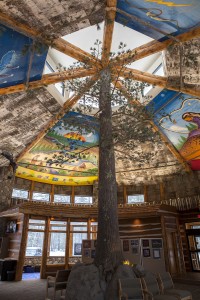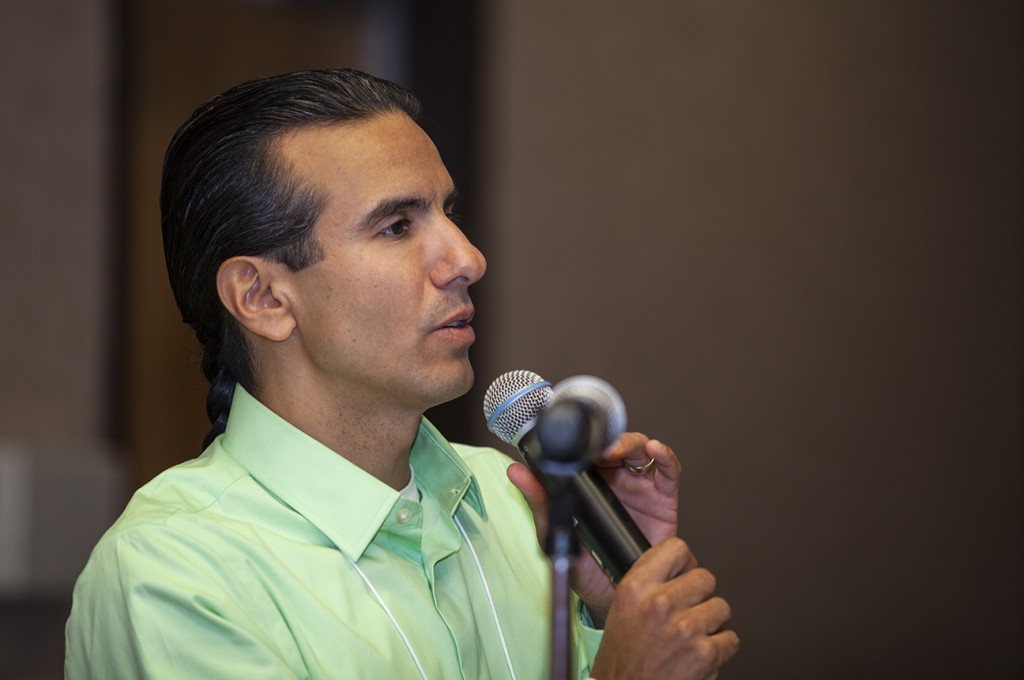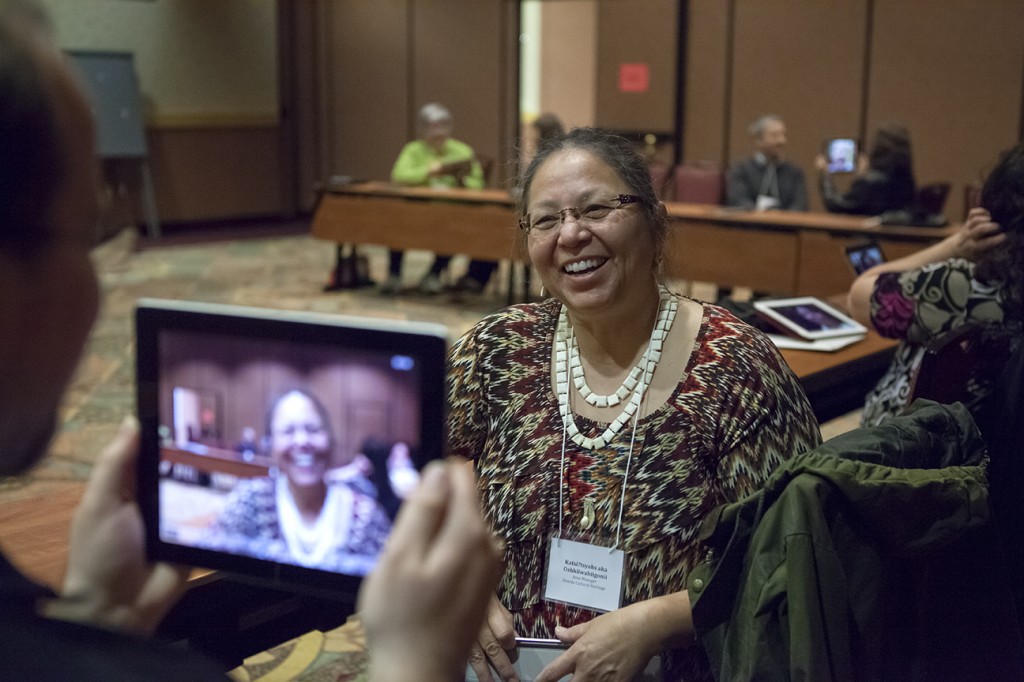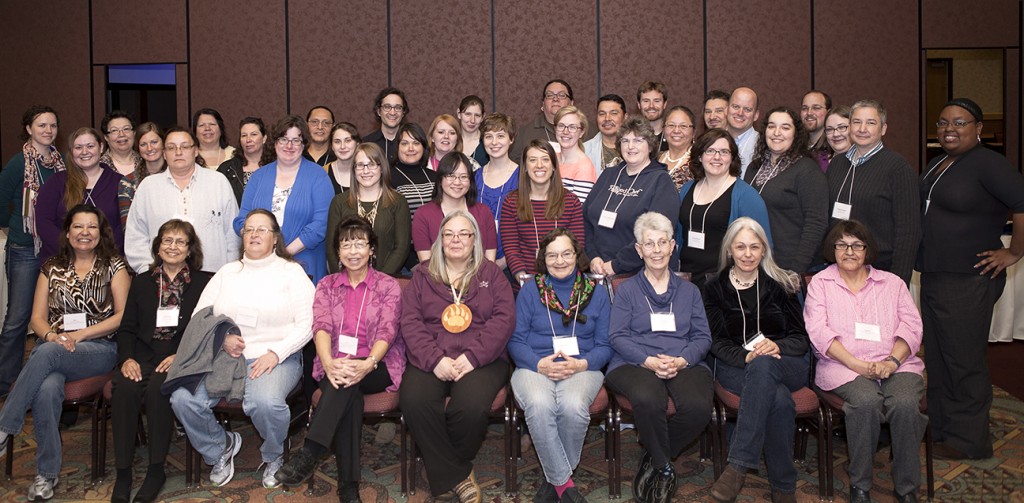“Oh! Well, that Anton Treuer sounds very funny and quite smart, but honey, what is this conference? What’s it about?”
-My Mom
On the return home from Lac Du Flambeau, I called my Mom and Dad to tell them all about Convening Culture Keepers. Having described the snow (you read that right! SNOW!!), our drive up, and my excitement at having met Anton Treuer, my Mom asked me, “Oh! Well, that Anton Treuer sounds very funny and quite smart, but honey, what is this conference? What’s it about?” And I thought for a second; how could I describe my last forty-eight hours to my parents?
A Brief History of Convening Culture Keepers
This past weekend was the sixth Convening Culture Keepers gathering; since 2010, in coordination with SLIS-CES (http://www.slis.wisc.edu/continueed.htm ) and Wisconsin-based tribal cultural workers, Convening Culture Keepers is a series of networking and professional development mini-conferences; these biannual meetings seek to enhance culturally relevant services for tribal communities through the training of cultural workers and the development of an informed and committed network, which stretches from Bayfield, WI to Madison, WI. For more information on the history of CCK or to learn more about the support and funding to Convening Culture Keepers, click here.
The Convening Culture Keepers Difference!
The emphasis at the Convening Culture Keepers gathering is really and truly about the development of a professional development network; rather than listening to paper after paper, all attendees introduce themselves to each other. During the 10 minute breaks, culture keepers exchanged hugs and words of encouragement, rather than retreat to their phones or laptops.
At CCK, I truly feel that though we all are working towards the same goal; though many culture keepers are from differing institutions and are at different points in our professional development, there is a true sense of community; our resources aren’t limited to the electronic and material sources we consult; we are resources for each other!
Lac Du Flambeau
 This spring, we were hosted by Teresa Mitchell at Lac Du Flambeau, Wisconsin. Arriving on Thursday afternoon, we toured the Peter Christensen Dental Clinic, the Wellness Center and Ojibwe Language Program, the George W. Brown Jr. Ojibwe Museum and Cultural Center, the Woodland Indian Art Center, and the site of the boy’s dormitory boarding school!
This spring, we were hosted by Teresa Mitchell at Lac Du Flambeau, Wisconsin. Arriving on Thursday afternoon, we toured the Peter Christensen Dental Clinic, the Wellness Center and Ojibwe Language Program, the George W. Brown Jr. Ojibwe Museum and Cultural Center, the Woodland Indian Art Center, and the site of the boy’s dormitory boarding school!
It was truly inspiring to learn more about the way in which the Lac Du Flambeau Ojibwe are “taking back” their history and highlighting the resilience of Ojibwe culture and language!
I cannot speak highly enough of the wonderful work being done by Teresa and all of the other cultural heritage preservation workers.
On Thursday night, our meal was made by the ENVISION students, a service-learning initiative at the Flambeau school that has “Ojibwe culture at its heart,” who hosted us at the Lac Du Flambeau school! The students are so incredibly passionate about incorporating their culture into their curriculum. Arriana, my sixth grade tour guide told me that her favorite part of ENVISION is, “. . . choosing her own projects. . . because some students don’t learn by sitting inside. I want to be outside, like my ancestors!”[1]
Additionally, all the conference participants, with the guidance of Greg “biskakone” Johnson, assisted in the construction of birch bark medallions with culturally relevant symbols. Greg is so talented! Be sure to check out his website here.

On Friday morning, Anton Treuer spoke about the importance of language preservation and provided a series of resources which the culture keepers could use! I was most struck by how Dr. Treuer described the transition of knowledge in Ojibwe communities. “. . . The grandmother said to the grandson. . . I’m giving you a white hair, as in ‘I’m passing down a piece of wisdom to you.”[2] Knowledge and cultural information can take multiple forms and can be passed down in a variety of ways, but it can be fleeting. Treuer reiterated one of the themes in his latest book that there is a danger for tribal nations to climb the mountain to political empowerment and political prosperity and risk the loss of language and cultural revitalization.[3] Learn more about the fantastic work Dr. Treuer by checking out his website. (P.S. The TLAM-ers read his book, “Everything you Wanted to Know About Indians but Were Afraid to Ask,” this semester!)

Friday afternoon was filled with workshops about which can range from institutional disaster planning, basketry preservation and material culture preservation, and the use of iPads and digital media in institutions. The diversity in topics covered insured that no attendee walked away from a single workshop without something to bring back to their institution.
I feel truly privileged to be able to attend this conference! Thank you from the bottom of my heart to everyone who made it possible!
-Mary Wise

